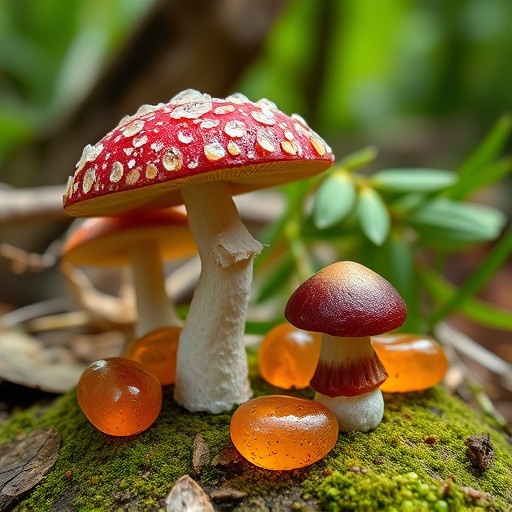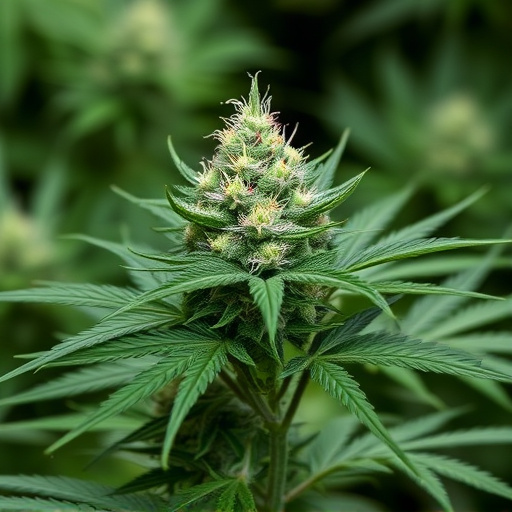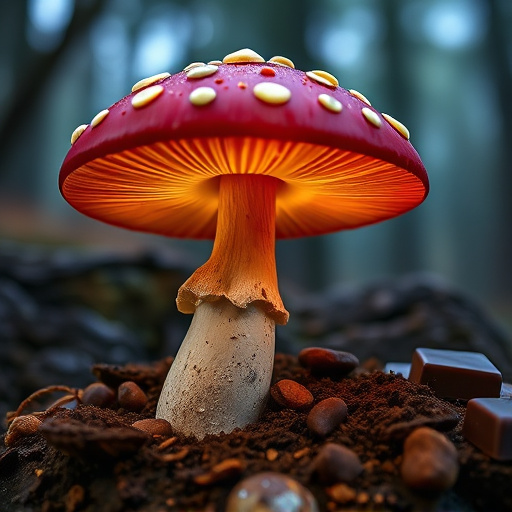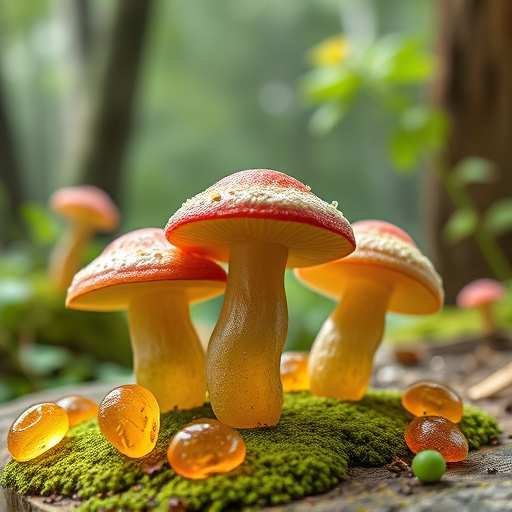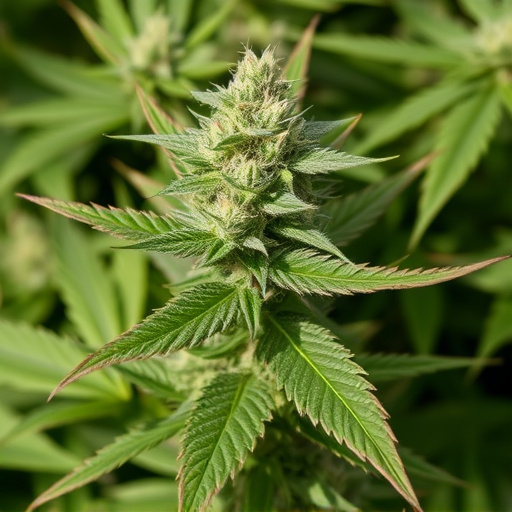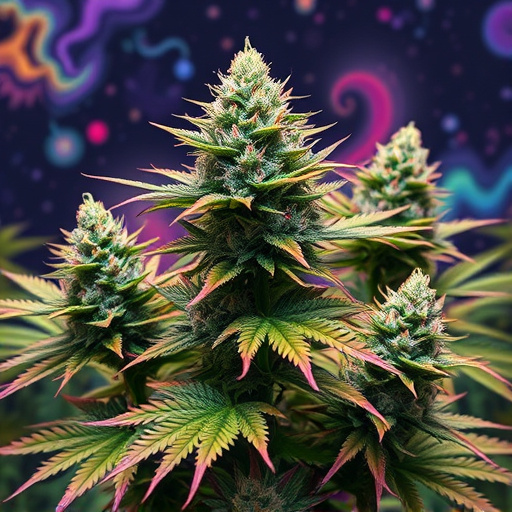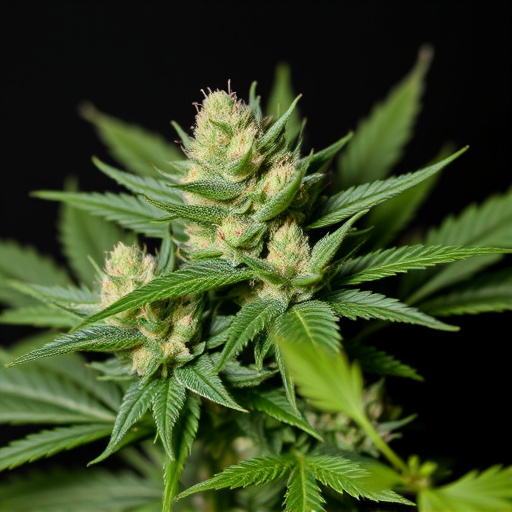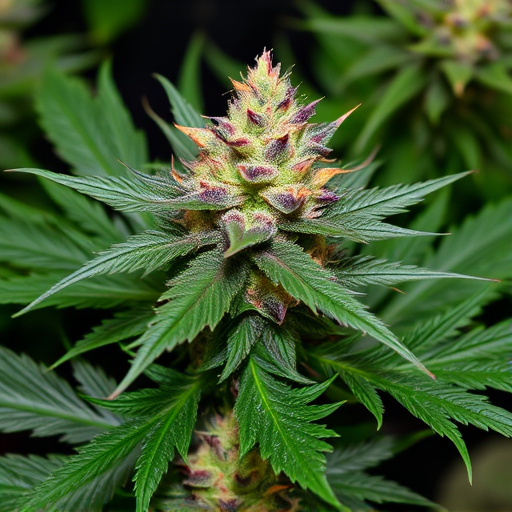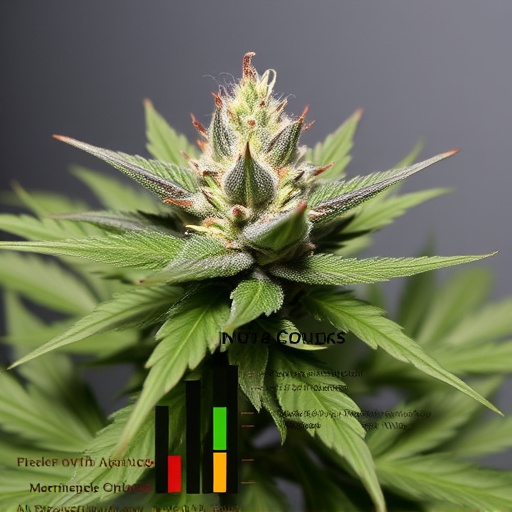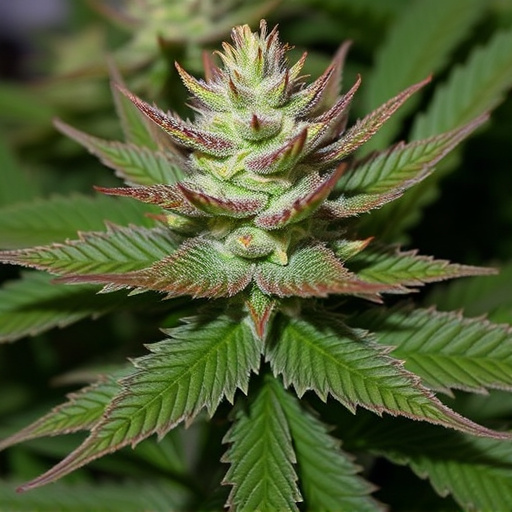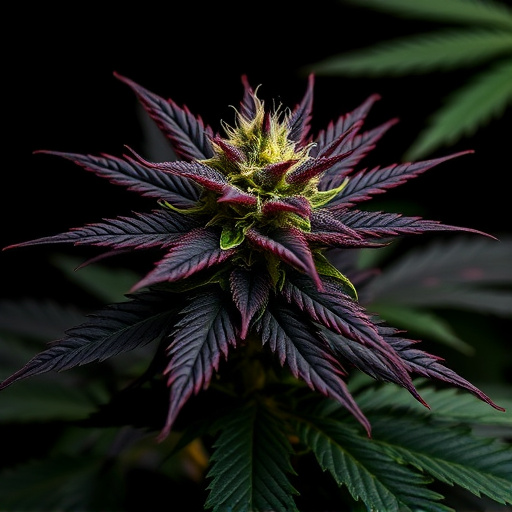Indica Kush strains, high in THC, interact with the human endocannabinoid system, offering therapeutic benefits like relaxation, pain management, and stress reduction but also carrying risks of heightened anxiety, cognitive impairment, and disrupted sleep. Responsible use requires strain selection based on individual needs and caution for those with pre-existing mental health conditions.
“Unraveling the complexities of high-THC indica kush strains, this article delves into their profound effects on both body and mind. While these potent varieties offer potential therapeutic benefits, their increasing popularity raises important questions about risk and regulation. From the physiological changes induced by THC to mental shifts experienced, we explore the intricate relationship between indica kush strains and human health. By understanding the science behind these powerful plants, consumers can make informed decisions regarding their use.”
- Physiological Effects of High-THC Strains: Indica Kush's Impact on the Body
- Mental and Emotional Changes Induced by High-THC Indica Kush
- Potential Benefits and Risks: Understanding the Complex Relationship with THC in Indica Kush Strains
Physiological Effects of High-THC Strains: Indica Kush's Impact on the Body
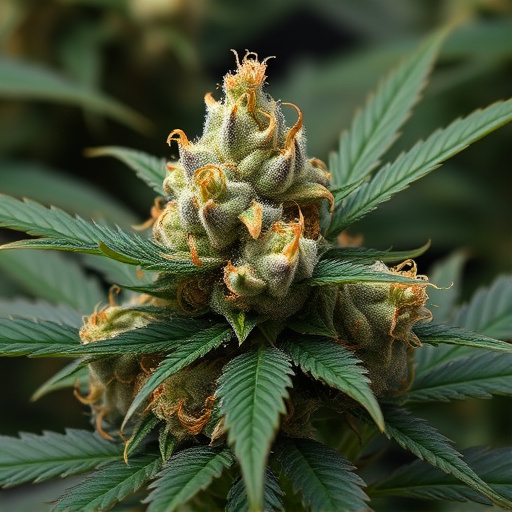
High-THC strains, such as Indica Kush, have notable physiological effects on the human body due to their potent cannabinoid composition. When consumed, THC binds to endocannabinoid receptors in various organs and systems, modulating pain perception, mood, appetite, and memory. In the case of Indica Kush, its dominant indica genetics often translate to a calming and sedative experience.
Physiologically, Indica Kush can induce relaxation in both mind and body. It may lead to reduced muscle tension and spasms, making it popular among individuals seeking relief from chronic pain or muscle stiffness. Furthermore, the strain’s ability to stimulate appetite—a common side effect of THC consumption—can be beneficial for patients with conditions that cause eating difficulties. However, it’s important to note that high THC levels can also lead to heightened anxiety or paranoia in some users, underscoring the individual variability of cannabis experiences.
Mental and Emotional Changes Induced by High-THC Indica Kush
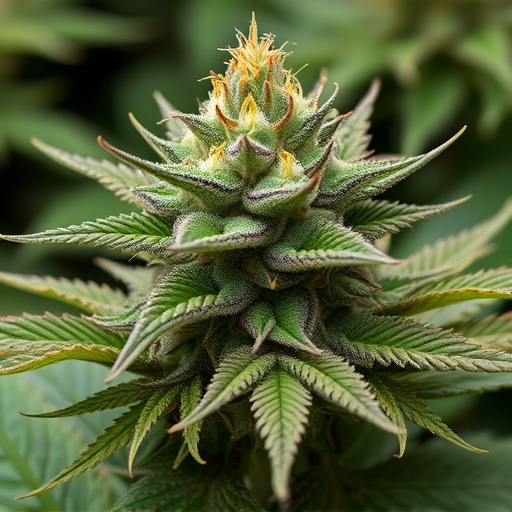
High-THC indica kush strains can significantly alter mental and emotional states, offering both potential therapeutic benefits and challenges. The powerful psychoactive effects of THC engage the endocannabinoid system, which plays a key role in regulating mood, memory, and perception. This engagement often results in heightened sensitivity to sensory input, leading to profound experiences that can range from euphoria and relaxation to anxiety and paranoia, depending on individual tolerance and strain specifics.
Indica kush’s mental and emotional effects are typically characterized by an intense sense of calm and sedative properties, making it popular for managing stress, insomnia, and chronic pain. The deep relaxation induced by these strains can slow down thoughts and promote a sense of tranquility. However, for those prone to anxiety or with a history of mental health issues, high-THC indica kush may exacerbate existing conditions or trigger new concerns, emphasizing the importance of responsible use and strain selection tailored to individual needs.
Potential Benefits and Risks: Understanding the Complex Relationship with THC in Indica Kush Strains
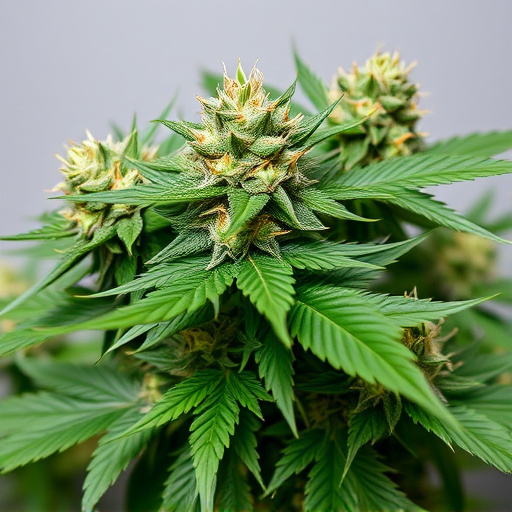
Indica Kush strains, renowned for their distinct effects, offer a complex interplay of potential benefits and risks for users. THC, the primary psychoactive compound, plays a pivotal role in this dynamic. In moderate doses, it can induce a sense of relaxation, alleviate pain, stimulate appetite, and even provide anti-inflammatory benefits—all qualities that make Indica Kush popular among medical cannabis users.
However, high-THC content isn’t without risks. Elevated THC levels can heighten anxiety and paranoia in some individuals, leading to an unpleasant experience often referred to as a “bad trip.” Prolonged exposure may also contribute to cognitive impairment, particularly in adolescents whose brains are still developing. Moreover, Indica Kush’s sedative effects might disrupt sleep patterns if consumed close to bedtime. Understanding these nuances is essential for responsible cannabis use and maximizing the potential benefits while minimizing risks associated with indica kush strains.
High-THC indica kush strains exert complex effects on both the body and mind, offering potential therapeutic benefits while carrying risks that should not be overlooked. Understanding the physiological and mental changes these strains induce is crucial for navigating their use responsibly. Further research into the intricate relationship between THC and indica kush compounds is essential to unlock their full potential as medicinal tools and ensure safe consumption practices.

